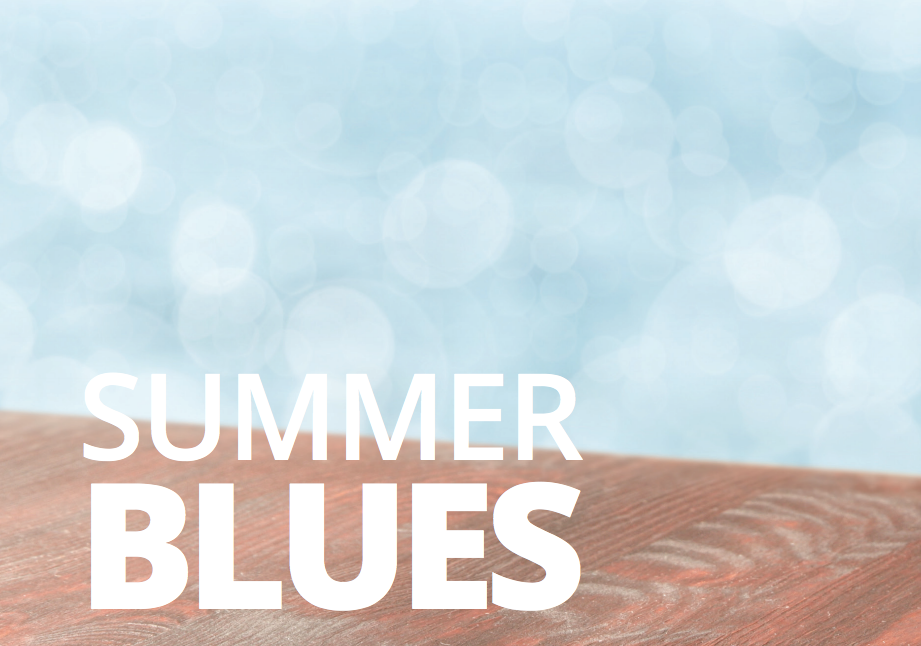Summertime, and the living’s easy. Except what if it’s not? Rachel Kelly shares her techniques for staying on top if you experience a sinking feeling
The sky was a flawless cerulean blue; the sun shone in the kind of steady way that only usually happens in the Mediterranean; and our picnic was perfect: the strawberries were unbruised, the salad still crisp, and the little gooey custard tarts scrumptious.
Yet as I sat surrounded by my family and other picnickers in the park one day earlier this month, I felt a thunderclap of fear. It passed, only to be replaced by a growing sense of unease and a draining of hope and optimism. My brain felt oddly mangled, as if I was about to lose my footing.
But I didn’t panic. These symptoms are familiar to me as someone who has had a long history of anxiety and depression. Here we go again, I thought: this is a highly predictable case of the summer blues.
I’ve wondered since then what it is about July that I find difficult. After all, this is when the living is supposed to be easy! But actually, for many, the holiday months can be anything but.
Partly I think my anxiety is triggered by the pressure to be perfect. We are bombarded by images of smiling families with pearly white teeth and beach-ready bodies, frolicking in the surf. Whose own messy family and chaotic holiday can match up? Certainly not mine.
Therapy has taught me that I have a tendency to imagine everyone else finds life easy: that all those other families are truly content, while our family’s happiness is just an illusion. Yet as my therapist explained, it is just that I am comparing what she calls their ‘outsides’ with my ‘insides’.
Never more so than on holiday do the ‘outsides’ of other people’s lives look especially shiny. But they too wrestle with worries and insecurities, as I do. They too feel the pressure to be happy, as I do. They too are juggling their squabbling children who are fighting over the only pair of goggles.
Now, when the summer blues strike, I follow these guidelines for staying steady and keeping my Black Dog (as Churchill famously called his depression) on a firm leash.
- When I felt panicky on my picnic rug, I turned to my breathing exercises. By concentrating on my breath, I was able to still my anxiety – an emotion that makes breathing shallow and fast. I placed one finger over my nostril: halving the rate at which I was inhaling and exhaling and forcing my body to slow down, thereby calming my racing mind. Treat breath as your anchor. Your mind will wander, that’s what minds do. But gently keep bringing your attention back to your breath.
- I then took solace in two or three healing sayings, and repeated each in the style of a mantra. My favourites have always been: ‘This too shall pass’, ‘My strength is made perfect in weakness’ and ‘Westward, look, the land is bright’. Healing words can help a hurting mind. Find phrases such as these that lift your spirits and repeat them to yourself when you feel all hope is spent. You will get better.
- I’m finding certain mindfulness techniques very helpful at the moment: for instance, focusing my attention on what I’m experiencing in the present moment, without judgment. So instead of fighting my feelings of unrest as I sat in the park, I accepted them, trusting that they would pass.
- Although it felt counter-intuitive to focus on anyone else at that moment, I very deliberately gave my attention to the children, helping them fill their plates and enjoy the picnic. Acts of generosity and kindness, however small, are linked to higher levels of mental wellbeing as research has consistently shown.
For me these techniques work best when combined and used together. By breathing, saying my mantras, accepting my feelings, and focusing on others, the worst of my symptoms pass. Life can be a picnic – but not to worry if, on occasion, you can’t wait to pack up and go home.
Rachel Kelly’s memoir, Black Rainbow: how words healed me – my journey through depression, is published by Hodder & Stoughton and is available for purchase on Amazon. The Black Rainbow app is available for download on the Apple App store and Google App store for free. All author proceeds to SANE and United Response. Follow Rachel @rache_Kelly or visit www.thewordsdoctor.com




